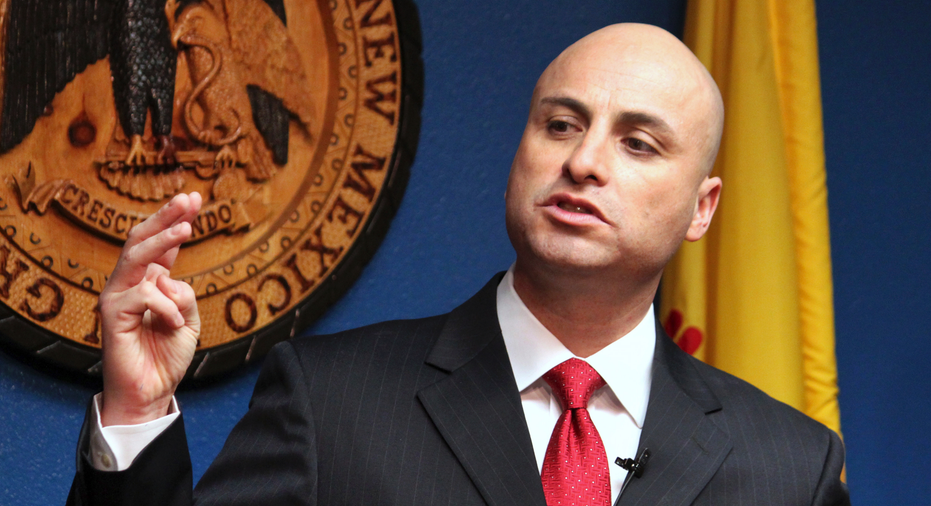New Mexico sues mobile app makers over kid privacy concerns
FILE- This April 26, 2017, file photo shows a Google icon on a mobile phone in Philadelphia. New Mexico is suing Google, Twitter and other companies that develop and market mobile gaming apps for children, saying the apps violate state and federal laws by collecting personal information that could compromise privacy. The lawsuit filed in federal court late Tuesday, Sept. 11, 2018, comes as data-sharing concerns persist among users. (AP Photo/Matt Rourke, File)
ALBUQUERQUE, N.M. – New Mexico is suing Google, Twitter and other companies that develop and market mobile gaming apps for children, saying the apps violate state and federal laws by collecting personal information that could compromise privacy.
The lawsuit filed in federal court late Tuesday comes as data-sharing concerns persist among users.
Social media giant Facebook just weeks ago pulled one of its own apps over possible privacy intrusions and a recent Associated Press investigation revealed that several Google apps and websites store user location even if users have turned off location history.
New Mexico Attorney General Hector Balderas said he's concerned given that the apps can track with such precision where children live, play and go to school.
"These multi-million-dollar tech companies partnering with app developers are taking advantage of New Mexican children, and the unacceptable risk of data breach and access from third parties who seek to exploit and harm our children will not be tolerated in New Mexico," he said.
The lawsuit accuses advertising businesses run by Google, Twitter and three other companies, along with the app maker Tiny Lab Productions, of violating a law meant to keep private the personal data of children under 13.
The Children's Online Privacy Protection Act adopted by Congress requires websites and online services to disclose what information they collect from children and how they use that information.
That disclosure must also be provided directly to parents and verified consent must be given. The lawsuit accuses the defendants of violating these federal mandates.
Google said in a statement Wednesday that apps included in its family program must comply with stringent policies that address age-appropriate ads and privacy disclosures. The company also said those apps must comply with the federal law.
The company said it is "constantly working to improve the program."
Twitter said Tiny Lab was suspended from its MoPub platform a year ago for violating policies regarding child-directed apps. That privacy policy does not permit MoPub Services to be used to collect information from apps directed to children under the age of 13 for purposes of personalized advertising.
On its website, Tiny Lab posted that the company is not violating federal privacy laws regarding children since it asks for the birth date of the user to determine their age according to federal guidelines.
If a user is under 13, none of the personal information is collected, it says. But the lawsuit argues that's not enough.
Tech companies are under increasing scrutiny over their data practices, following a series of privacy scandals at Facebook and new data-privacy rules recently adopted by the European Union.
Last year, the business news site Quartz found that Google was tracking Android users by collecting the addresses of nearby cellphone towers even if all location services were off. Google changed the practice and insisted it never recorded the data anyway.
Critics have said Google's insistence on tracking its users stems from its drive to boost advertising revenue. It can charge advertisers more if they want to narrow ad delivery to people who've visited certain locations.
According to the lawsuit, Google was notified earlier this year by security researchers at the University of California-Berkeley that they had identified privacy-invasive technology and practices in Tiny Lab's gaming apps.
Google responded to the researchers, saying that the apps were not designed primarily for children, but for families in general so there were no violations of the federal privacy laws.
New Mexico prosecutors said in the lawsuit that the defendants were aware of the violations yet have failed to take steps to cure the misconduct.
They are seeking civil penalties and asking the court for a permanent injunction to prevent further violations of the laws.





















